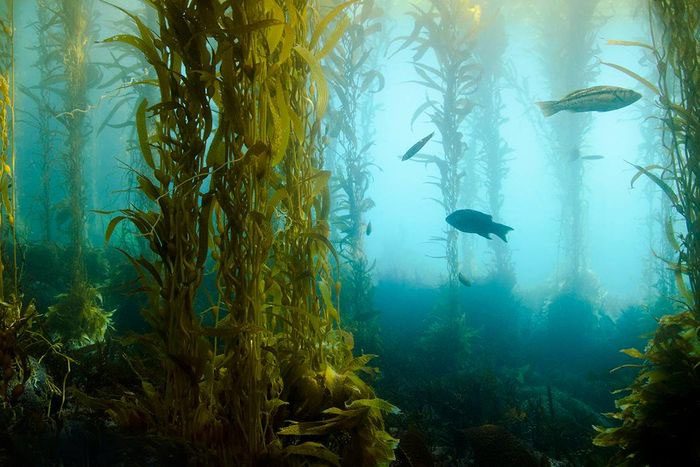Globally, kelp forests are deteriorating due to rising ocean temperatures. A group of researchers from New Zealand is working to restore this valuable habitat.
According to a study conducted by the University of Otago and published in the international journal PLoS ONE on December 9, kelp forests are among the most diverse and productive natural ecosystems on the planet. However, over the past 50 to 100 years, many stretches of kelp forests have been lost, and many remaining kelp forests are in a state of decline.

Globally, kelp forests are deteriorating due to rising ocean temperatures. (Photo: daily.jstor.org)
Kelp forests can absorb large amounts of CO2 from seawater. However, rising ocean temperatures may affect the reproductive capacity of this marine plant. New Zealand researchers conducted a simulated ocean floor study, finding that in warmer waters, kelp produces more spores, but fewer spores “settle” on the ocean floor, and those that do settle develop more slowly.
The researchers at the University of Otago are undertaking a project aimed at restoring kelp forests in the sea.
Kelp is found on the ocean floor from North Island to the sub-Antarctic islands and serves as a primary habitat for many marine species of cultural, recreational, and commercial importance.
The goal of the New Zealand scientists’ research is to understand the impact of rising seawater temperatures on the early developmental stages of kelp.
The lead author of the study, Mr. Duong Le from the Department of Marine Science at the University of Otago, stated: “This research highlights the vulnerability of kelp during its early development stages and helps us better understand past changes as well as future trends in the kelp forest ecosystem in New Zealand.”
Meanwhile, co-author Mathew Desmond, also from the Department of Marine Science at the University of Otago, noted that this research contributes to the understanding of kelp and supports conservation and restoration efforts for this species.


















































